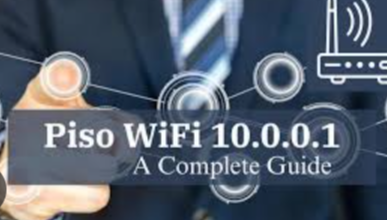0.0.0.1 Lpb Piso Wifi Pause

The 0.0.0.1 Lpb Piso Wifi Pause functionality serves as a pivotal tool for network administrators seeking to streamline network management processes efficiently. Its capability to temporarily halt the Wi-Fi connection presents a valuable asset in maintaining network integrity and user experience. By understanding the intricacies of this feature and exploring its practical applications, administrators can seize control over network downtime and ensure optimal performance. As we delve deeper into the nuances of this system, a world of possibilities in network optimization and user communication unfolds, promising enhanced network efficiency and user satisfaction.
Accessing 0.0.0.1 Lpb Piso Wifi Interface
To configure and manage the Lpb Piso Wifi system, users can access the 0.0.0.1 interface through a web browser.
Troubleshooting connection issues involves checking network settings and signal strength.
For setting up guest network access, users can navigate to the appropriate section in the interface and create a separate network with limited access rights.
This ensures a seamless experience for both users and administrators.
Logging in to the Admin Panel
Upon accessing the 0.0.0.1 interface, users can proceed to log in to the admin panel by entering their designated username and password.
For troubleshooting login issues, ensure correct credentials are used.
Users can change the admin password within the admin panel settings for added security.
Remember to keep login information confidential and regularly update passwords to enhance system protection.
Navigating to the Pause Function
After successfully logging in to the admin panel, users can easily navigate to the Pause function by locating the designated tab within the interface.
Within this tab, users can adjust the pause duration and schedule when the pause function will take effect.
This allows for flexibility in managing the network’s availability, enabling users to tailor the pause feature to suit their specific needs and preferences.
Implementing the Pause Feature
Users can activate the Pause feature by selecting the designated option within the admin panel interface.
This feature allows for convenient pause scheduling, enabling users to set specific times for the Wi-Fi network to be temporarily disabled.
Additionally, user notifications are integrated to inform individuals when the network will be paused, ensuring transparency and allowing for better planning of internet usage.
Read more: 10 0.1 Lpb Piso Wifi Pause Time
Resuming Piso Wifi Network
To resume the Piso Wifi network after a scheduled pause, administrators can easily navigate to the admin panel interface and select the option to reactivate the network.
If troubleshooting connection issues arise during the reactivation process, checking the router settings and restarting the devices may help.
Additionally, increasing internet speed can be achieved by optimizing the network settings and ensuring proper bandwidth allocation for a seamless user experience.
Conclusion
Just as a conductor orchestrates a symphony, the 0.0.0.1 Lpb Piso Wifi Pause feature allows administrators to harmonize network availability with precision.
By seamlessly navigating the admin panel interface, users can schedule pauses like interludes in a grand performance.
This tool empowers efficient network management, ensuring smooth transitions between connectivity and downtime.
Embrace the pause, like the rest between musical notes, to create a seamless user experience.




